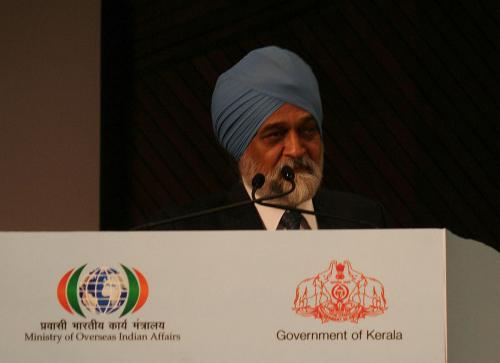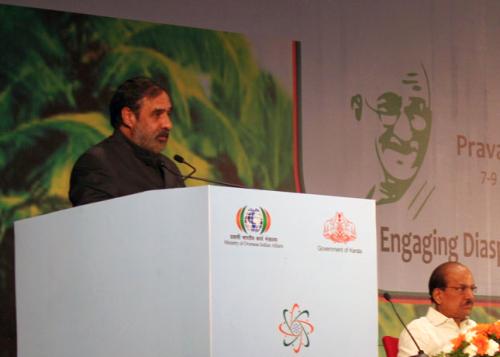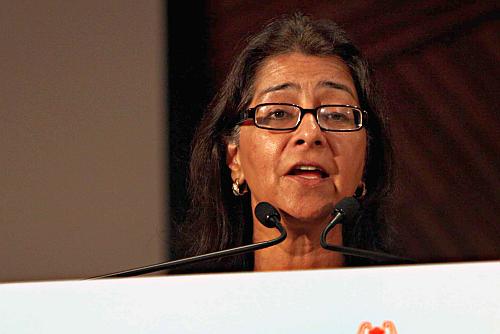 | « Back to article | Print this article |
Why investing in India will give great returns
India would rely more on foreign investment rather than borrowing or people's savings to help the economy grow, said Montek Singh Ahluwalia, the deputy chairman of India's Planning Commission.
He was speaking at a plenary session optimistically titled India's Growth: Greater Opportunities at the Pravasi Bharatiya Divas at the Le Meridien hotel in Kochi, January 8.
"When you increase investment, you can increase savings so that the gap between investment and savings is reduced," he said.
"If we want 8 percent growth and we want to sustain the investment needed for 8 percent growth and we do everything necessary to increase domestic savings ... you will still have a current account deficit which can only be financed either by borrowing or by foreign direct investment. The finance minister (P Chidambaram) has rightly made it clear that we do not intend to resort to too much borrowing."
He pointed out that even if the rate of growth in India only reached 7 percent instead of the current 8 percent, there were few other countries that could provide similar returns.
Click NEXT to read further...
Why investing in India will give great returns
There was China, of course, but those investing around the world might already have put their money there, he said. Besides, he said, India is underinvested.
India's gross domestic product is one-fourth that of China and its foreign investment one-tenth or one-fifteenth of what that country gets.
If a global investor looks around and asks where one can get growth and productivity, and therefore returns, India would be a good buy, he said.
Speaking about what such growth meant in real terms for Indians, Kamal Nath, India's minister for urban development, said a study had shown that an 8 percent growth rate meant 25 million people had two meals a day instead of one.
Ahluwalia described how a friend asked him why India was generating so much adverse publicity.
Click NEXT to read further...
Why investing in India will give great returns
"Actually, what you call negative publicity is in fact the commendation of a society that is rapidly transforming itself. Every problem in this country is paraded in the media but that was not a sign of weakness but of strength, he said, while excusing the doleful predictions of journalists and pundits about India's future.
If Ahluwalia relied on convincing people about the benefits of investing in India, those that came to the podium after him were even more enthusiastic.
Anand Sharma said India has done a good job of negotiating the recent economic crisis that washed over the globe, though it too had been hit, just as China and Brazil were.
"It is true that what India has achieved in the last two decades is phenomenal, transformative, but we're conscious of the fact that we have to continue on this path by engaging with the world, by bringing the world to India, creating more resources, redistributing those resources, reinvesting, and in the process creating opportunities and jobs," he said.
Sharma was not as tolerant as Ahluwalia of a strident media that says its mind even in the absence of strong evidence. He said there is a thin line between democratic discourse in a country and self-flagellation.
Click NEXT to read further...
Why investing in India will give great returns
"Everything in this country is done lawfully ... and if there is a violation, accountability is fixed ... and people go unpunished. That does not happen in India," he said.
Naina Lal Kidwai, the country head for HSBC India and president of the Federation of Indian Chambers of Commerce, cited the Goldman Sachs report that suggests the stock market, Nifty, could grow 17 percent to reach 7,000 by December.
This, she said, would be only second to Korea, while China was likely to get only a 15 percent growth. Kidwai said that if the projections were right it was a good sign, since a strong stock market was a good indicator of business mood.
She said India continues to emerge as a preferred destination for global corporations, manufacturing facilities, and increasingly for research and development centres.
Besides, Kidwai pointed out, India has continued receiving investments of $70 million, while China, which had been doing very well, had received only $66 million.



